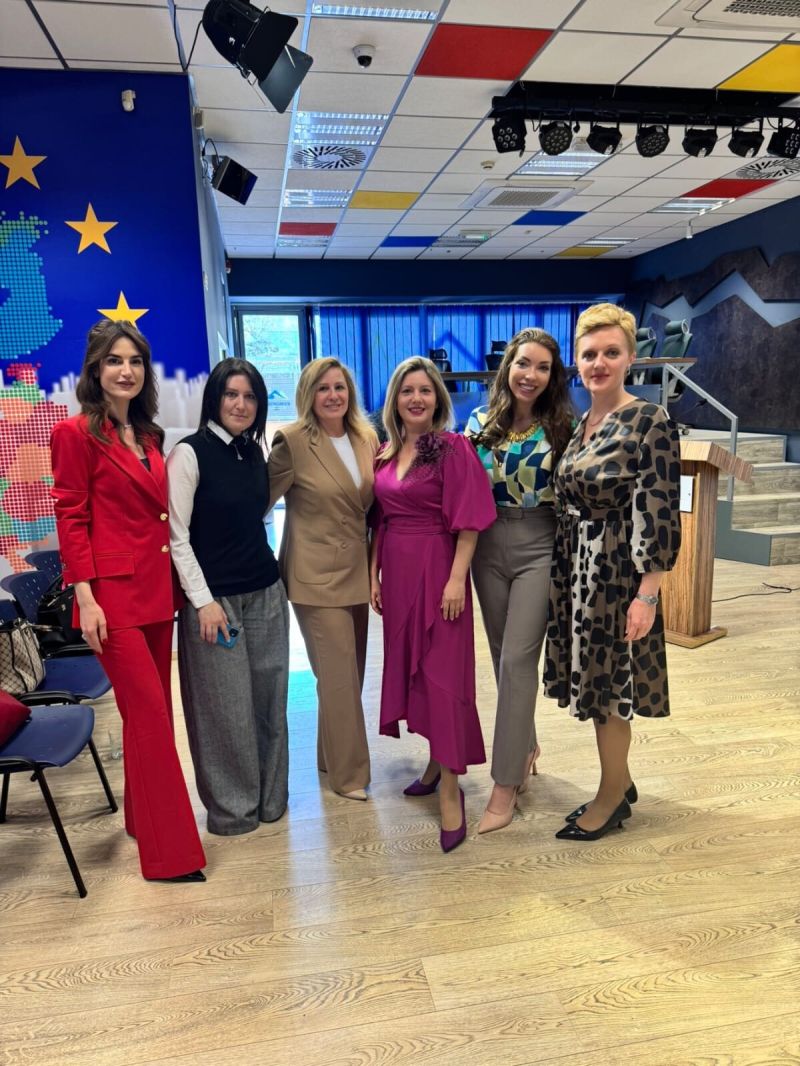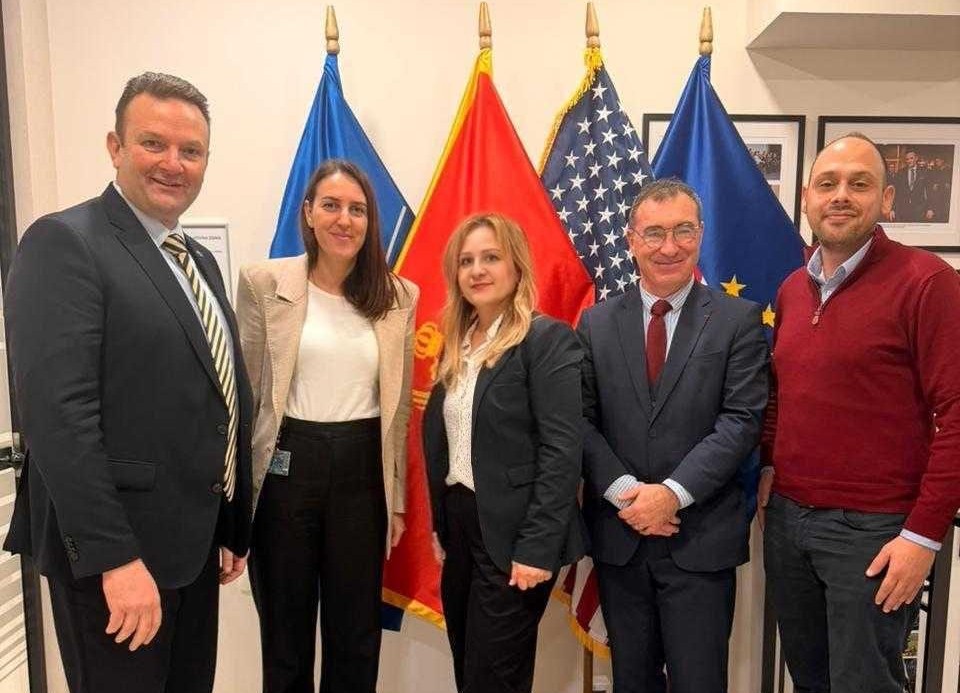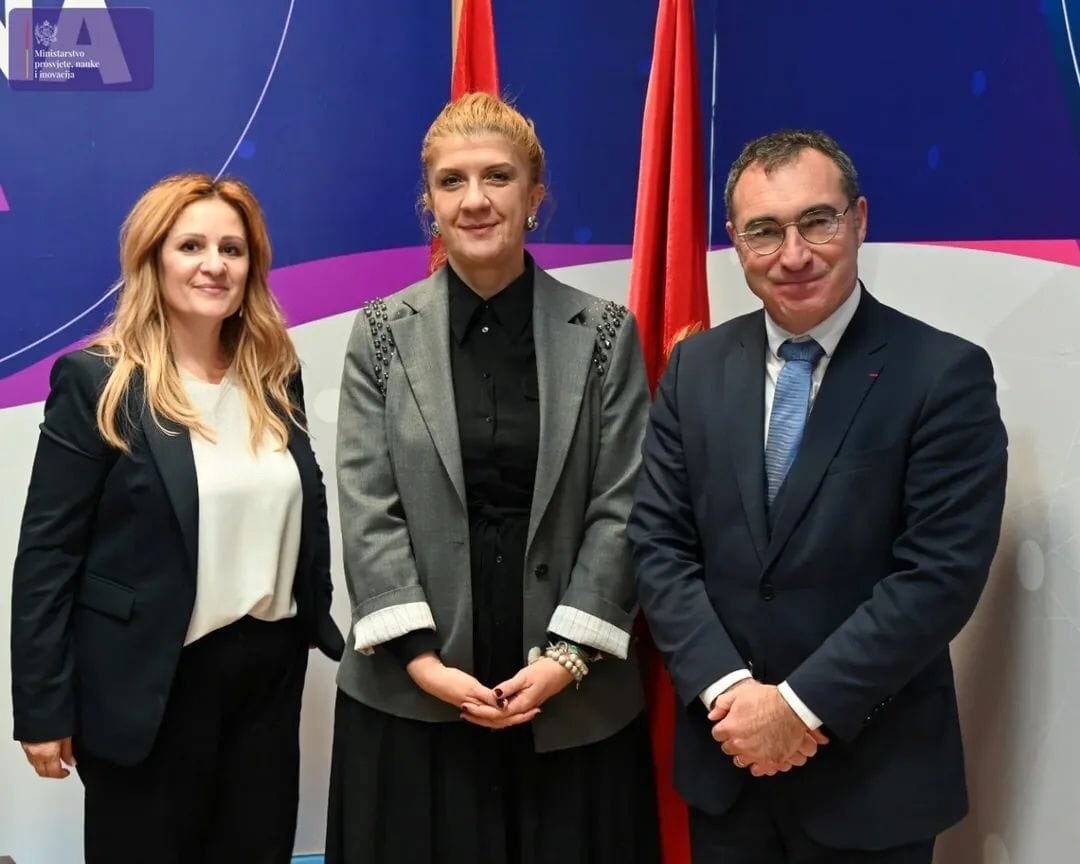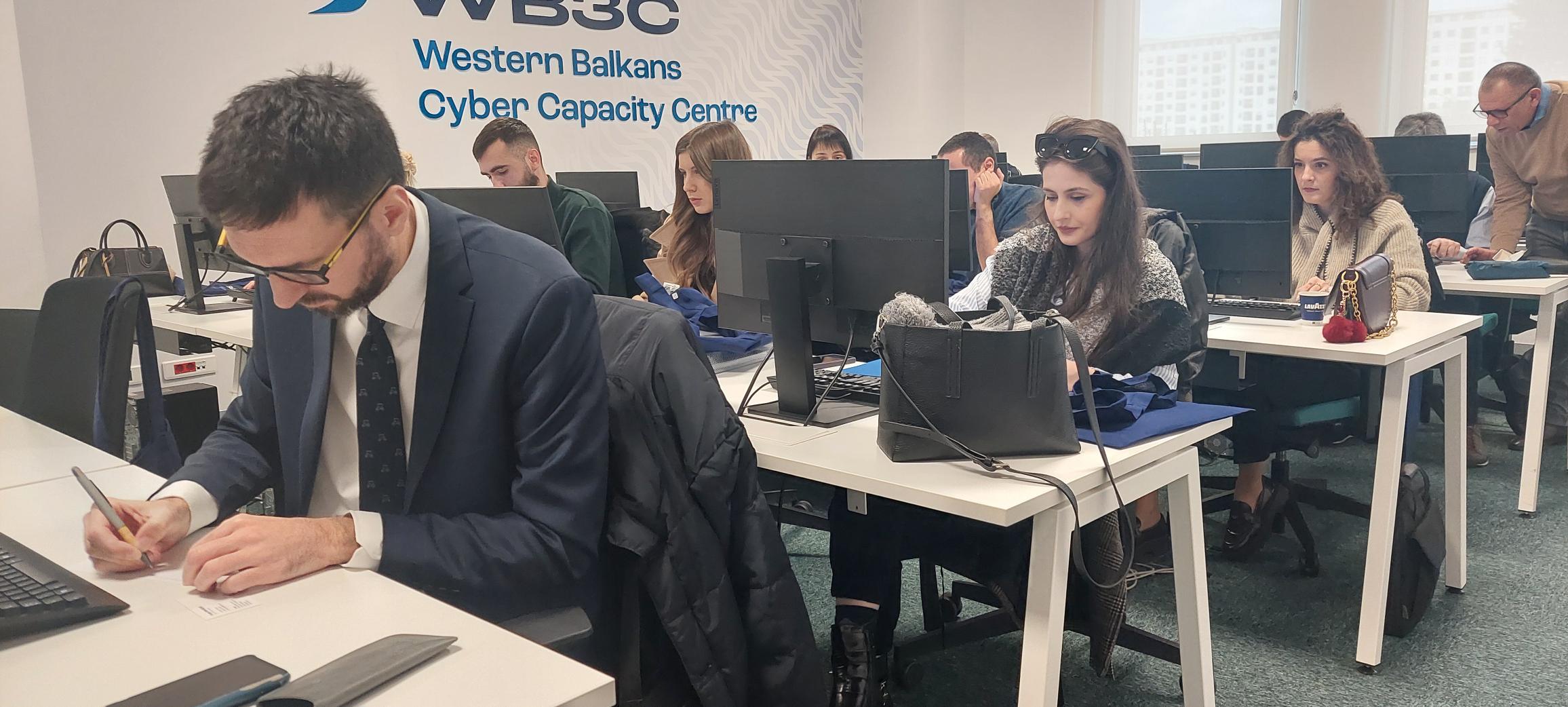Our Senior Project Manager, Vanja Madzgalj MBE, had the honour of speaking at a distinguished panel organised by Europe House, WeBalkans, and Women4Cyber Montenegro, in celebration of International hashtag#GirlsinICTDay 2025. The panel brought together some of Montenegro’s most prominent women leaders in tech:
· Valentina Radulović, Director of the Science and Technology Park
· Jasna Pejovic Pejović, Founder of hashtag#Flourish, recognized as one of top 15 EdTech solutions in US.
· Ana Nives Radovic, leading figure in fintech and blockchain, and a game developer with a remarkable academic and artistic background
· Andreja Mihailovic, PhD, Doctor of Law and President of Women4Cyber Montenegro, a tireless advocate of gender equality and promoter of women in ICT.
As someone who transitioned into the tech and cybersecurity field after a long-standing career in education, creative industries and international cooperation, Vanja Madzgalj MBE spoke about how strategic leadership, community building experience and lifelong micro-learning supported her shift into a new sector.
At the Western Balkans Cyber Capacity Centre (WB3C), she now leads on strategic communications and brand development, helping to position the Centre as a regional driver of cyber resilience and EU integration efforts in the Western Balkans.
In her message to young women she highlighted that:
· The tech sector thrives on diverse talents — not only engineers, but also educators, policy experts, creatives and communicators.
· Adaptability, creativity and life-long learning are essential to sustainable career growth.
· Having a clear goal and professional direction empowers us to shape our paths with purpose, rather than leaving it to chance.
At WB3C, we believe that diversity in the tech sector is not just an organisational imperative — it is a societal one. And yet, real change often begins with small, strategic steps: a decision to learn, to connect and to speak up. Because tech is not only about code. It is about people — people with vision, creativity and resilience.
WB3C proudly supports gender equality in cybersecurity — and we remain committed to creating space for more women to shape our digital future.







